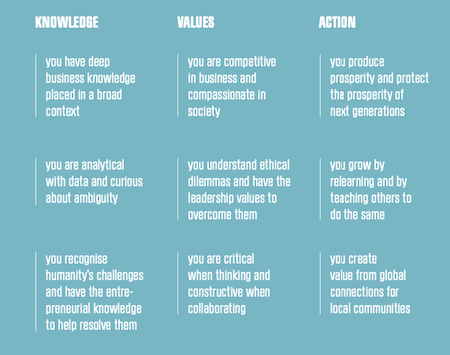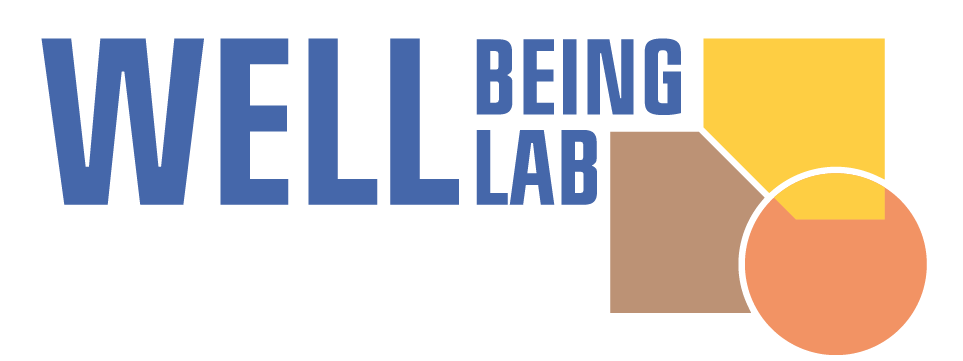CBS Nordic Nine
Introducing the Nordic Nine
Rethinking the role of a business school as an institution that can and must participate in addressing some of the major societal challenges of our time is central in the recent CBS strategy. There is given emphasis to the notion of being “transformative”, a transformative business school, stressing the vision to have closer engagement in and with society and integrating social responsibility across disciplines. In the strategy it reads: “As the business sector assumes increasing responsibility for addressing these challenges, companies and organizations seek to mobilize curiosity and innovation for the benefit of the planet as a whole. As a partner in these efforts, CBS transforms society with business. CBS is a globally recognized business school with a broad focus and deep roots in the Nordic socio-economic model.” Drawing on the Nordic heritage with an aim to develop disciplinary skills and transformational capabilities for students, CBS has formulated nine core focus areas, called “Nordic Nine” (N9). They are divided into three interconnected areas of knowledge, values, and action (illustrated below), with the vision that ”we pursue knowledge that builds values, and values that prepare for action.”

How this project works with Nordic Nine
What does it mean to be a transformative business school or to develop transformative capabilities among students? In the following section we will give our take on the Nordic Nine in relation to our “stress prevention and well-being” project, zoom in on the most relevant focus areas for our work, and outline how we intend to work with it in practice.
Knowledge
The “stress prevention and well-being” project is addressing and producing knowledge about one of the major societal challenges in modern organizational and work life. In recent times there has been an unprecedented increase in stress, mental health issues, and lack of well-being across different organizational settings worldwide, whether it is children in schools, students at high schools and universities, or employees in public and private organizations. This affects learning abilities, businesses, and everyday lives of millions of people. Therefore, doing research with the aim of both acquiring new knowledge of these challenges and developing methods to give students a deeper understanding about these challenges, the root causes, and ways to address it proactively, is indeed an important business knowledge placed in and relevant for a broad context.
The knowledge from this project enables students to recognize this significant societal challenge, how it might show up in their own lives, in the lives of their co-students or colleagues, and in the future workplaces they will become part of. It is an important capability to be able to recognize and understand the nuances, complexities, and dynamics of these stress-related issues, but also paramount in order to be able to address the challenges constructively. The project thus has a strong focus on applying research results and theory in practice, for example through developing methods in which students can train and learn by doing. Furthermore, the collaborative approach behind this study emphasizes a close collaboration with students, which is central to the development of empirical knowledge but also considered a part of a learning process for the students involved. In this sense, they are a living “part of the data”, and get to experience how their experiences, learnings, and reflections related to insecurity, examination, grades, and group work, are valuable insights and data in our project, and between groups of students. This trains an awareness of these topics and a curiosity towards the more difficult or uncomfortable emotions and experiences oneself or others might have, which we consider transformative capabilities, and extremely important for the work market. This is indeed about being curious about ambiguity.
We like the term “curious about ambiguity” because it frames quite well the approach to stress that we advocate, which is that ambiguity in human emotions and relations in modern organizational settings are natural and unavoidable. Instead of seeing it as something to avoid, suppress, or remove, we suggest addressing it with openness, curiosity, and as important to innovation, learning, and growing. Ambiguities can for example be in the form of tensions, conflicting emotions, sensitivity, vulnerability, dilemmas, fears of what others might think, experiences of failures, having courage to speak up about difficulties or when one cannot live up to own or other’s expectations. To be curious about, stay with, and find ways to manage within ambiguities in student- and work life, we consider a part of transformational capabilities that can help students understand themselves and others in relational contexts in novel ways. It will enable them to take responsibility and contribute to healthy and strong work environments, whether in the capacity as employee, colleague, or leader – based in a deep relational understanding of stress, shame, and well-being. In this line, we address real life problems and believe that it will help students act in “the bigger picture” with responsibility in the society in which they live.
Values and action
The three core problematics that we have identified as major causes for stress among students are: insecurity (in study life), pressure from exam and grades, and difficulties in group work. Learning how to manage these better will have great implications for the students’ future work life, because there are similar problematics in many modern organizations today. Pernille’s research has shown that these issues show up as: insecurity about doing work tasks well enough, doubts about career path, pressure up to deadlines, stress from performance focus, inability to meet expectations, increased demands of cross-disciplinarity collaboration, and problems with working with others. Furthermore, understanding how stress, shame and problems concerning well-being is a relational phenomenon, not an individual responsibility, is important to build strong work environments and communities, including fostering qualities of compassion and non-judgement for self and others.
In this section we address values and actions together because they are so closely intertwined. Based on the knowledge, addressed above, the project centers around some values and human capabilities, which we believe can inspire and influence actions. For example, we consider compassion an essential value in relation to stress prevention and enhancement of well-being, much needed in today’s society. It concerns the ability to “feel with” others despite differences; to make a conscious effort to understand and respect other’s feelings, experiences, and opinions; to strive towards approaching oneself and others with kindness and non-judgement; to welcome vulnerability and also difficult experiences; which, altogether, ultimately can help create more psychologically safe spaces for people to share, learn, and co-create. Awareness of stress-related issues combined with understanding, curiosity, and compassion could indeed spark a desire to hold space for others and help relieve their suffering. For example, our research shows that it has great benefits for others when students share openly about their difficulties, insecurities, or failures – it relieves others and normalizes difficult experience (e.g. see Pernille’s video “”Når dit bedste ikke er godt nok – at lære at fejle er vigtigt”, addressing what happens when people share about their failures). We can see already, that many students want to provide this help for others (e.g. see our videos and podcast where students share their experiences and reflections about this topic). It means that there are great potentials within the collective and we believe that these kind of experiences among students, will be something they carry with them into their future work life – to be compassionate in society. This also relates to ethical dilemmas in workplaces and developing important human skills that will translate into strong leadership values and capabilities that can help navigate dilemmas and ambiguities constructively, including in group work and collaboration across disciplines and differences.
In this project, we will in the next two years (2022/23) – based on all the knowledge generated within the first year of the project – develop methods and “training rooms” where students can work with such tensions and practice ways to navigate and take responsibility, concerning insecurities in a relational setting. Through this project, students are brought into situations that make them reflect on their moral judgement and empathy, as well as personal goals and values, while also becoming aware of the reflections of their fellow students. Although set in a student context, it also will relate to tensions that students can meet in workplaces, for example dilemmas that can arise due to conflicting demands or ambitions of performing 100% in all aspect of life (career, family life, personal interests etc.). Our approach is not to focus on overcoming dilemmas per say, but instead to learn how to stay with tensions, to become more comfortable within it, and to develop capabilities to relationally manage and create from within tensions. This includes gaining an understanding of what might be the barriers to achieve this, which, as an example, could be fear of being judged by others, the need for control or fear of losing control. This is important in order to understand oneself and others in relational dynamics, like group work, collaboration, and organizational environments; something, we perceive as part of the transformative skills, we aim to transmit through the project – skills that relates to qualities like self-reflection, perseverance, responsibility, curiosity, emotional intelligence, empathy, courage of honesty, non-judgement, embracing differences, kindness, and care of self and others.
To hear more about how we consider these values and human – and transformative – capabilities important to work with in an educational institution like CBS, see the video (in danish) “Hvad siger forskningen – pres fra eksamen & karakterer” where we discuss the research findings and its implications.
